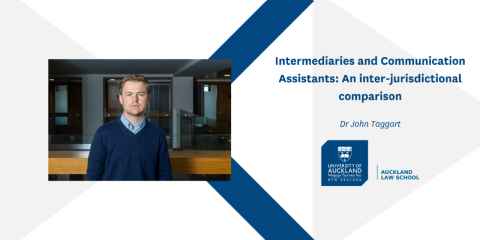Effective Participation in the Criminal Justice System – Intermediaries and Communication Assistants

The intermediary special measure was first introduced in England and Wales in 2004 to facilitate communication between individuals with communication needs and the criminal justice system. Described as ‘little short of revolutionary’ it has become an integral part of the criminal justice system and has effected a ‘culture change’ in the treatment of vulnerable witnesses and defendants. The role of the ‘communication assistant’ in New Zealand is modelled on the intermediary role and has been gaining increased attention since its first use in 2012. Although there has been relatively little research conducted into communication assistants, feedback from criminal justice professionals has been overwhelmingly supportive of their work.
How do these roles compare in terms of their provision and practice? This presentation critically examines both systems in context with a view to understanding how vulnerable court users can be better accommodated in justice settings. It engages with concepts such as ‘enabling understanding, ‘best evidence’ and ‘effective participation’ and raises some critical questions which, it is argued, should guide further research in this area.
About the Speaker
Dr John Taggart is an Assistant Professor of Law at Queen’s University, Belfast. John was called to the Bar of Northern Ireland in 2013 and the Bar of England and Wales in 2015 and has practised criminal law in both jurisdictions. John completed his PhD at the London School of Economics (LSE) in 2022, his thesis focusing on the role of the intermediary in the criminal justice system. He is currently collaborating with the Australian Capital Territory (ACT) Human Rights Commission as it rolls out its new defendant intermediary scheme. John has published several peer reviewed articles in the Criminal Law Review, Journal of Criminal Law, Journal of Law and Society, International Journal of Evidence and Proof and Archbold Review.